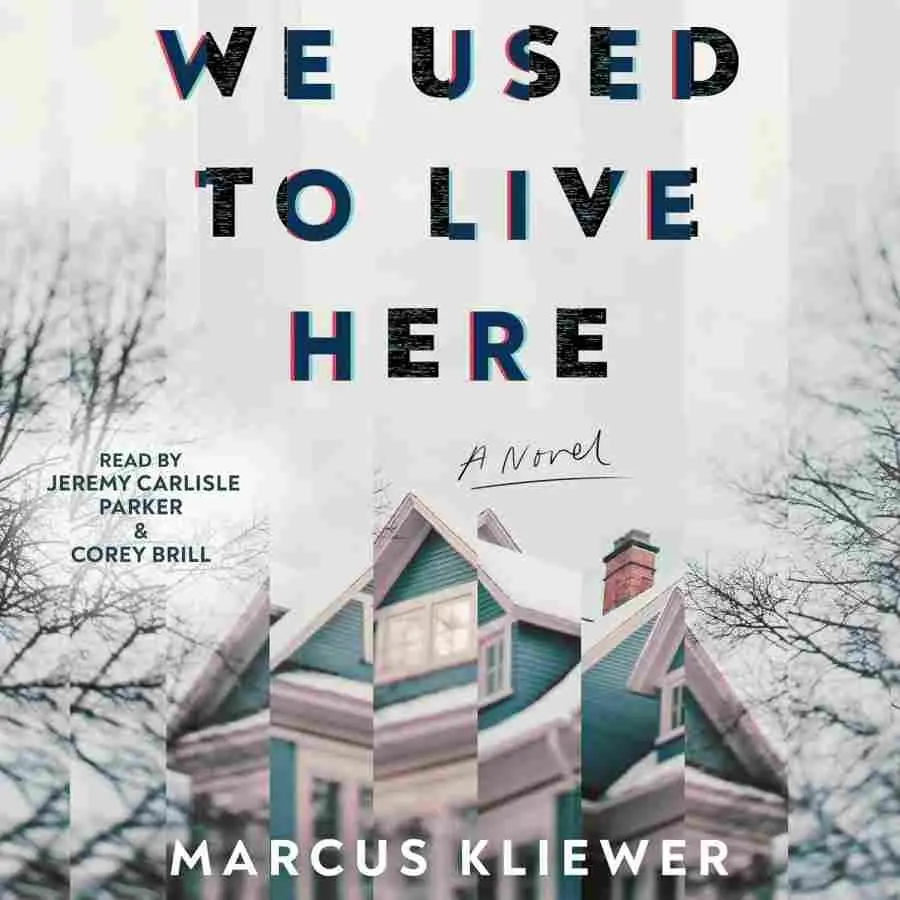

Marcus Kliewer’s audiobook “We Used to Live Here” is frightening and intriguing, and it has swiftly gained notice for its spooky storyline and psychological depth. The narrative, available as an audiobook on platforms such as Audible and Kobo, explores themes of memory, trauma, and the supernatural, making it an engrossing read for lovers of horror and psychological thrillers.
The audiobook, recorded by the great Jeremy Carlisle Parker and Corey Brill, lasts around 9.9 hours and immerses listeners completely in Kliewer’s disturbing universe. The story’s combination of psychological tension and supernatural aspects has set it apart in its genre, garnering similarities to famous films such as Get Out and Parasite.
An overview of the plot
“We Used to Live Here” revolves on Charlie and Eve, a young lesbian couple who make a fortune flipping properties. They come upon what seems to be the opportunity of a lifetime: a magnificent, although ancient, home in a charming neighborhood. The house’s history and frighteningly cheap price are missed in their eagerness to start again. However, the couple’s happiness is short-lived.
As they begin repairs, an unexpected visit from a guy claiming to be a previous homeowner triggers a series of strange incidents. The father, joined by his family, asks Eve to show his children about the home, a fairly simple request that Eve, ever the people-pleaser, does. Once inside, the family’s presence starts to unravel the fabric of reality in the home. Objects move independently, the atmosphere becomes stifling, and a horrible sensation of dread begins to pervade the air.
The story takes a grim turn when the visiting family’s youngest kid unexpectedly vanishes and a ghostly apparition arrives in the basement. The visiting family, while cordial, becomes progressively uneasy, unwilling to go even as the situation worsens. Charlie’s abrupt departure drives Eve over the edge, as she fights to discern between reality and the growing lunacy that the home seems to instill.
Character analysis
- Eve: Eve is shown as a multifaceted character who is highly empathic and eager to please, which frequently works against her. Her eagerness to invite strangers into her house foreshadows the catastrophe that follows. As the novel develops, Eve’s mental condition deteriorates, and readers are taken on a trip through her increasing paranoia and terror. Her character represents the fragility and psychological pain that Kliewer expertly weaves throughout the story.
- Charlie: Charlie, Eve’s companion, is not as prominent in the plot but plays an important role in illustrating the couple’s chemistry and the pressure the home puts on their relationship. His untimely absence is a watershed point in the novel, driving Eve further into solitude and despair.
- The Visiting Family: The family who comes to the home serves as the impetus for the tragedy that follows. Their originally innocuous presence becomes malevolent, and their reluctance to depart transforms them into emblems of unavoidable dread. The odd conduct of the children, as well as the father’s insistence on remaining in the home, add to the story’s mounting suspense.
Theme and Symbolism
“We Used to Live Here” delves into various subjects that have a strong emotional impact on the listener. The most common belief is that the past haunts the present, both literally and metaphorically. The home, a symbol of protection and security, serves as a conduit for the past’s unresolved traumas, appearing as supernatural events.
The concept of truth vs perception is also important to the story. As Eve’s experiences get increasingly weird and horrifying, the boundary between what is real and what is imagined blurs, resulting in a psychological terror that makes listeners rethink the nature of reality.
The narrative also addresses the concepts of invasion and loss of control. The visiting family’s incursion into Eve and Charlie’s lives mirrors how trauma can infiltrate a person’s psyche, taking root and refusing to leave unless faced and resolved.
The Narrative Style and Impact
Marcus Kliewer’s work is distinguished by a gradual buildup of suspense and atmospheric richness. The tale moves at a methodical pace, enabling the terror to gradually permeate the listener’s awareness. This pace reflects the gradual onset of anxiety and paranoia, heightening the impact of the story’s finale.
The audiobook format heightens the story’s psychological terror, with narrators’ performances adding layers of emotion and intensity. Jeremy Carlisle Parker and Corey Brill bring the characters to life with their voices, which depict the story’s mounting terror and perplexity. The combination of sound and rhythm in the audiobook produces an immersive experience that draws the listener further into the story’s disturbing universe.
Critical Reception and Impact
“We Used to Live Here” has received accolades for its atmospheric narrative and psychological depth. Listeners have commented on the story’s ability to evoke a sensation of dread that lasts long after the audiobook has concluded. The analogies to Get Out and Parasite are well-deserved, as Kliewer expertly combines social critique with horror, producing a tale that is both thought-provoking and disturbing.
The story’s popularity has resulted in its adaptation into a Netflix original film, which is projected to reach an even larger audience. The combination of Kliewer’s narrative and the visual medium promises to heighten the story’s terror, making this a widely anticipated release.
Conclusion
“We Used to Live Here” is an engaging audiobook that provides a new perspective on the haunted home genre. Marcus Kliewer’s debut highlights his ability to create psychological terror that is both frightening and intensely intriguing. The audiobook’s narrators, Jeremy Carlisle Parker and Corey Brill, add to the plot with their emotional performances, making it a must-listen for aficionados of the genre.
The story’s study of issues such as trauma, reality, and invasion hits home on numerous levels, providing listeners with a tale that is both intellectually challenging and horrifying. As “We Used to Live Here” gains traction, Marcus Kliewer’s reputation as a promising voice in horror writing becomes stronger.


